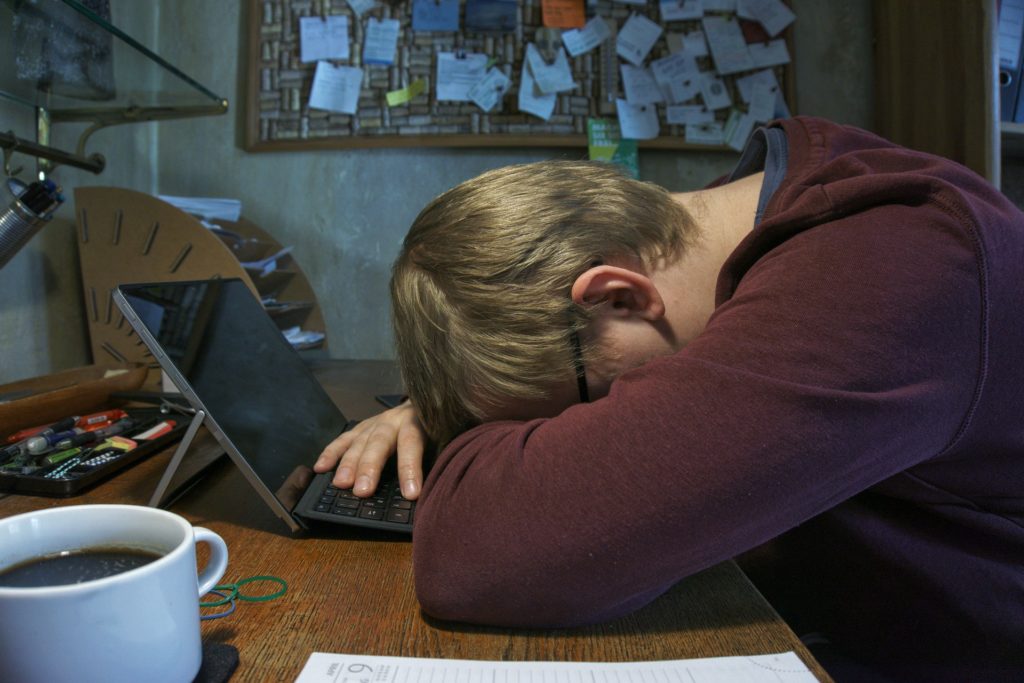Long-term and full-time teleworking can have serious psychological consequences, a group of expert psychologists has warned in a recent report.
When it comes to working from home or at the office, there must be “an optimal balance as soon as the epidemiological situation permits,” said the Psychology & Corona expert group, which is affiliated to several Belgian universities.
Too much of a good thing
Teleworking is currently mandatory wherever possible in Belgium as part of a second lockdown to curb the spread of coronavirus. It also became the norm during Belgium’s first lockdown in March.
Teleworking can improve what psychologists call quality of life, as studies have shown in the past. However, now that it has become the rule, it is less beneficial to mental well-being. A major negative consequence is the lack of social contact with colleagues, there’s no clear end of the workday and there is an added pressure to family life.
Work-family life
The expert group followed teachers throughout the first lockdown and saw “that the level of reported work-family conflicts rose quickly,” as family troubles can often make their way into work.
This problematic aspect of teleworking is most visible in people with many housemates, but single people who live alone suffer as well.
Sudden and dramatic shift
Mandatory teleworking is a “sudden and dramatic shift,” the psychologists said, as “employees and employers with little teleworking experience are also suddenly being forced to switch to virtual ways of working together.”
Employers must take this challenge into account, the expert psychologists said, as being forced to work from home is a different context than doing so on a voluntary, partial basis.
Related News
- Belgians' mental health declines towards lockdown levels, study finds
- Restaurants face a new Covid-related crisis: teleworking
Harder work
In addition, data shows that the notion of teleworking as a time to work in a more relaxed way is a misconception, according to VUB researcher Tim Vantilborgh.
In fact, “people who telework put in more hours, for example because they skip breaks, continue working or do some extra work in the evening,” Vantilborgh said. That can lead to exhaustion and less time to recover.
A good balance
A good balance between teleworking and constant work from home would be two days of teleworking per week, according to a report by the Psychology & Corona expert group.
The expert group also recommends active ways of recovering from work, such as practicing sports or going for a walk, as well as structuring your day, choosing a separate spot to work and imposing clear working hours on oneself. Finally, the group recommends frequent breaks and the use of "rituals to start and finish your day."
Jason Spinks
The Brussels Times

